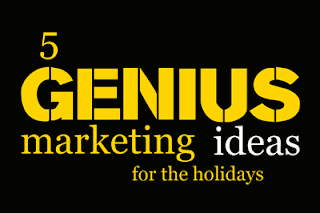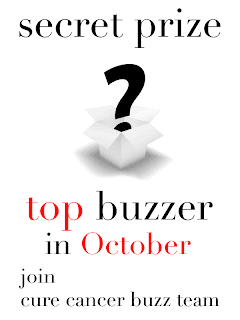B2C vs. B2B Marketing Myths

Time Appears To Be The Only Difference
For more than ten years I was an e-commerce guy. I built my first website, FoundObjects.com (now RIP), in 1999. Found Objects, the specialty gift company I co-founded with Janet McKean, sold specialty gifts to museum stores around the world AND to consumers online.
FoundOjects.com was one of the first B2C and B2B websites. I left ecom to work for Raleigh's leading software and web development agency Atlantic BT almost two years ago. After several years in B2B marketing I can only identify one difference in online marketing - TIME.
The TIME Difference between B2B and B2C marketers may be a difference without a distinction.
The sales cycle for most B2B websites stretches from weeks to years. Since many B2B websites are selling products or services with large price tags a longer "get to know you" phase is expected. If we were visionary about TIME even this B2B vs. B2C difference disappears.
B2C merchants make offers via email marketing and social media to sell things today. This immediate Stimulus to Response (S to R) curve makes it appear B2C merchants operate on a faster conversion funnel. Maybe.
When I built my first website in 1999 there were few relationships. Everything was new online. The web was the wild west. If your stuff was cool, well priced and exclusive you made sales.
If your stuff was cool, exclusive but priced wrong or unsupported by social, or the User Generated Content (UGC) that passed for social at the time (reviews), you didn't make many sales.
Sales in those halcyon times were about building trust in a new idea (the web) and in your e-commerce site's (and by extension company's) ability to deliver.
Once we moved past the web's novelty phase relationships mattered most, relationships drive everything and always. How a website / company treats customers, employees and business partners over TIME creates reputation.
Reputation Forms Brands
Reputation forms the base of a "brand". Brands are contemporary shorthand. Contemporary life requires shorthand. There is too much information chasing too little attention to exist without shorthad. Investing complex meanings, feelings and thoughts into a symbol or an idea such as Nike or Coca Cola quiets the mind.
Brands are the ZEN required to navigate a modern life.
Last year I heard Amy Africa describe her research into the "buying state" consumers assume when they make an online purchase. Apparently our "dinosaur brain" is fully engaged. We straighten our backs, lean in and prepare for battle when making an online purchase.
If BUYING is stressful then brands are trusted stress relief. Our ability to walk into a McDonald's anywhere in the world and have an experience within 10% of our expectations creates comfort. Developing band "comfort zones" takes TIME and a mountain of information by an army of people.
There is no jumping the "brand development" shark, no way to hurry meaning into the "brand creation system". Marketing may go viral helping to jump over the first hurdles, but time required before TRUST is granted and secure remains a predictable constant that varies by product, service or buying need. For some business verticals such as office supplies time to trust is minimal.
Some business verticals aren't so controversial in either our use and expectations or their marketing that we spend much time thinking about them. Our "office supply" need is more than met. Challenge for office supply marketers is to stay relevant. Boring and good isn't much better than boring and bad.
Other business verticals are more "stressful" and so ripe for dramatic change such as:
* Buying A Car.
* Internet of things impact on Sears et al.
* Fashion (apparel).
* B2B Marketing
B2B Marketing Is Changing Fast
The last few paragraphs make a compelling argument for why TIME isn't different for B2B or B2C. Time just FEELS different. Every aspect of Internet marketing seems fully present in B2B / B2C tactics and approaches such as:
* Need Ever Increasing Customer Engagement & Advocacy.
* Relationship must "deepen" and become more meaningful over time.
* Relevant customer-centric communication is a CSF (Critical Success Factor).
* Listening more than talking is a CSF.
* Sculpting BIG to feel intimate, little and personal is a CSF.
* Google's algorithm doesn't distinguish between B2C vs. B2B web pages or content.
Marketing futurist Faith Popcorn famously said, "People don't BUY brands they JOIN them". Popcorn's statement was beyond prescient since the ubiquitous mobile web didn't exist when she made it.
Why does a stranger "join" a brand, company or website? Think of the emotional triggers as Me Becomes Us.
Why People Join Brands, Companies and Websites
Like Me.
For Me.
For Us.
Studies* show our most intimate friends are a bit of an echo-chamber. Our friends tell us what we want to hear and that communication creates confidence. When we want to be challenged we move further away from shore. We look to our "looser" relationships with friends of friends.
Like Me is our desire for comfort. When a website's signals such as reviews, reviewers, images or copy say "LIKE ME" we relax. We don't give ourselves freely or easily. Condition by more advertising and marketing messages we live skeptical of anyone's desire to help us without return.
When we find products, services, companies or websites that are honest and "FOR ME" by their easy shares, online reputation established by a pool of information ABOUT them and if they pass muster with our friends (if their experience confirms ours) we lower shields and allow vulnerability to increase.
Only when we've reached this middle stage of TRUST and CONFIDENCE are we willing to stretch. If our experience and signals remain strong we may move away from our comfort zone and think about the commons being created between ourselves and the brand, company, product or service.
Internet marketing, and it doesn't matter if you sell to businesses or direct to consumers, require an ever increasing and vehement army of brand advocates. Brand advocates always and only come from this third interaction - the move to FOR US (or recognition of a shared commons).
Then vs. Now
MadMen is a beautifully executed example, if somewhat exaggerated for effect, of THEN. Before the integrated circuit cut time and distance marketers didn't have to create FOR US marketing.
Consumer choices were limited. When choice is limited LIKE ME and FOR ME are sufficient. When choices is unlimited, as it is now, FOR US creates sustainable relationships. Feels like we've come a long way from, "What are the differences between B2B and B2C online marketing".
Not really. Online marketing is a MEANS to a greater end. Internet marketing is and has always been about the commons. Examine the most successful Internet marketers to confirm this truth:
Google (commons)
Amazon (content commons & distribution power)
Facebook (community commons)
When your company understands and embraces the commons to crete FOR US marketing the web becomes a giant multiplier. Little companies go viral and become BIG companies because they've created great LIKE ME, FOR ME and FOR US marketing. Dollar Shave Club is one recent favorite example of creating great LIKE ME, FOR ME and FOR US marketing.
Core of the "new altruism" some of my favorite authors discuss (Benkler in Penguin and Leviathan, Shermer in Mind of the Market and Wright in NonZero) is the web's gasoline on an existing fire. We were always going to arrive at FOR US marketing.
The web's ability to connect, socialize and its massive repetition (how far is your smart phone from you ever) is gasoline to our Maslovian journey. Maslow believed we search for "actualization". What is actualization but the commons?
Perhaps I have an unfair advantage. Funny to think of having the Big C as an advantage, but hearing "cancer" and my name in the same sentence stripped an old belief system bare immediately and forever. Connection, service and challenge create the confidence we need to imagine a FOR US life.
My personal turn toward something bigger mirrors OUR journey. In a time when everything is available we want less and more. We want fewer THINGS and MORE from them. Things in and of themselves seem isolated and alone.
I wouldn't be so naive to believe Greed Is Good doesn't exist as a driving philosophy for many, but Greed Is Good doesn't scale online. Increasingly the right thing to do is also the most profitable. Do I care if we cure cancer because large companies want to support CureCancerStarter.org because it plays well on social media?
Not even a little bit :).
* Studies: promise to review my archive and add some specific examples before end of the day.
I'm All In, You?
Here are helpful links so you know I'm not crazy, just in a hurry :).
Martin W. Smith, Director Marketing Atlantic BT
Martin Marty Smith on Facebook
Martin Marty Smith on Linkedin
Martin W. Smith on G+



Comments
Post a Comment